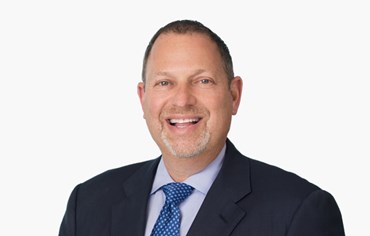Being at the helm of a firm with a top healthcare practice during a global pandemic puts Ira Coleman in a unique position to talk about how Covid-19 is shaping BigLaw.
The firm has had a very successful financial year. What’s underpinned that success?
We went into the pandemic with the mindset of good firms get through a crisis, great firms use it as an opportunity to be transformational. We really doubled down on listening to our clients and providing support during their most critical moments. We’ve worked hard to earn our position as their trusted advisor and being the leader in health law in a healthcare crisis, we produced a lot of thought leadership supported by meaningful insights they could put into action. Our trial and regulatory teams were also on the forefront. One of the silver linings during this time was that new rules and legislation were coming out at a breakneck pace and our Associates could, practically overnight, become experts on various topics.
We had also heavily invested in technology before the pandemic, so we were ready to go virtual instantaneously – not many firms could make that same claim. We combined that with an unwavering focus on communication and transparency to ensure we got everyone up to speed. We have a culture of gratitude, recognition, and appreciation, and that’s something we have leaned on heavily over the past year. I think it’s important to realize that we are blessed and enjoy privileges that many others around us do not. I seek to apply that knowledge in our approach to every aspect of the firm, from diversity to pro bono.
Can you elaborate on the ways in which the firm has used the pandemic to be transformational?
I was very interested in the thinking of the author, Simon Sinek, who advises that large organizations should use the crisis to act like a startup, to take risks and experiment. For example, we’ve completely changed the way we approach our training, mentoring, and apprenticeship models. Our associates have led the way in exploring different approaches for using Zoom for teaching purposes in a way that feels inclusive and meaningful.
We also developed a series of leading and lagging business indicators to anticipate future demand. For example, we began looking carefully at how many NDAs we see in a given week and are counting those in a way we wouldn’t have done before. We are also looking at more innovative ways of tracking associate availability to allow greater flexibility for them across multiple practice groups. Moreover, with the acceleration of innovation in healthcare and the constant regulatory changes in the sector, it’s been imperative that we keep on top of things for our clients. Specifically, we created a leading online resource center on Covid-related matters that has an unparalleled reputation.
What have been the most interesting developments within the healthcare sector?
The acceleration of telehealth and virtual visits has been huge. Nobody expected this kind of development and adoption for at least another 10 years, but the crisis has pulled the future forward by five years at least - maybe more.
We have seen providers go from two telehealth appointments a day, to 5,000 a week. It’s a more convenient and agile system for many people. Most healthcare systems were designed to be convenient for physicians, but many people find themselves having to visit multiple doctors in multiple locations for their treatment. However, it’s now possible for the patient to be connected directly to multiple health professionals, saving a lot of money and time.
We have also seen tremendous changes to the regulatory landscape, including revisions to health and safety, ethics, and enormous privacy issues pertaining to healthcare data. Our clients in the private equity space have never been more excited about activity in the sector and are very active making bets and investing in a variety of innovative young companies.
Are there other developments in the firm’s immediate future you think our readers should be aware about?
As a leadership team and a firm, we believe strongly that there is no returning to the way things were in 2019—and we have no intention of doing that. Everything has changed, from the way we connect with our clients to how we balance our personal and professional lives. Over the past year, we have become incredibly connected to each other. We know the names of each other’s kids, pets, and even house plants. That deeper level of engagement has stimulated more conversation on how to do things better. For example, I’m always getting emails from associates after meetings with ideas on how to improve things – that stuff is gold.
We also want to make sure we are doing everything to support our associates’ health and one big priority for us has been supporting parents. For example, we set up a virtual tutoring program, as well as story time where many of us went on Zoom and recorded videos of us reading kids’ books. In many ways, it’s been a fantastic experience connecting with everyone.
How would you describe the firm’s culture?
There are two prongs. First, the career-accelerating prong. We want to be the leading firm that people recognize as a place where they will do great things and have great experiences, but also where they will be treated really well. We want them to view McDermott as a lifetime firm. Second, we are always striving for improvement, reflecting our mantra of ‘#AlwaysBetter.’ For example, we are currently looking at ways to use technology to systemize our review process on a real-time basis and decouple it from how we calculate compensation.
Read more about junior associate life at McDermott, Will & Emery
